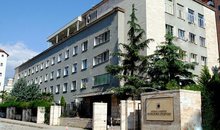
 Flash News
Flash News
Clashes at PSD electoral offices, PHOTO emerges of the perpetrator with black "Skorpions" in his hand
PD lobbying, Celibashi clarifies: PD has no obligation to file documents
Edi Rama's anti-American campaign
SPAK launches investigation into meetings of former Road Chief, questions two police station chiefs
Suspected of killing ex-boyfriend in Voskopoja, court orders prison sentence for Kejsi Spahillari
Veliaj as an outsider in SP of Rama (Bllokut) and the fight for the inheritance

Alfred Lela
The socialist parliamentary group's resistance to handing over Olta Xhaçka is one of the clear signs that in Rilindja, some political strata sleep the troubled sleep of their special myths of creation. All of them are under the supervision of Edi Rama, the all-powerful prime minister, and the political imposition on them comes mainly from the position that the head of government holds for one or the other.
The first and most cherished circle is the group that constitutes Rama's 'old acquaintances,' personal or intimate, connected to the prime minister through the city, Tirana, or even the political stratifications that emerge from the bloc and on its side.
Olta Xhaçka/Artan Gaçi, Ilir Beqja, Belinda Balluku, Bledi Çuçi, and others can be included in this group.
The last circle comprises Arben Ahmetaj, Fatmir Xhafa, Ditmir Bushati, and Erion Veliaj. What unites these is the urban non-belonging to the 'first circle' of leadership; they are either from the provinces or first-generation tyrants. They are not Rama's friends; in some eyes, there is also an accent that is not from Tirana. It can be said about these two that they come from the First and Second Operative Zones, which were the heart of the left, but in a way, they remained there; they did not grasp the political urbanization that the Bloc gives you, and belonging to it of the Socialist Party coming from the Labor Party.
Between these two large groups, there are other satellites, semi-free, where the strong men of the North stand out, whom Rama uses as cubs to lure or subjugate traditionally right-wing areas, or the half-businessmen and half-bandits of the South, the area where tricks do more work than bravery, and where through contractual benefits you can own any territory.
Today's editorial is interested in the first two groups and Edi Rama's different behavior towards them.
The first group, which synthesizes the political and social behavior of Edi Rama, is summed up better than anything by the contemptuous phrase of Minister Xhaçka: they should not come from the mountain with an umbrella to the beach (that is, to the resort of her strategic investor husband). as if it came out of Rama's vocabulary. It is the self-consciousness of an urban character who thinks he has a unique and inalienable place. This lies under the exclusionary dichotomy of 'I' and 'he', 'we' and ' they'.
The first to be sacrificed are the 'unknown others' and 'unwanted', that is, those 'from the mountain', not from Tirana, etc. The second ones are also those within the group, who are probably not from the mountain; they are from another city but not from Tirana, and especially not in the two central circles of the former Block. For this reason, Fatmir Xhafa was never Rama's favorite. He could be a communist of doc origin, but not a cool progressive (from the one who made the rounds in songs from Qemal Stafa to Petro Nini), i.e. 'old jacket'. This inconsistency seems to connect Xhafa with Veliaj.
Rama understands only those political figures in the SP who, in one way or another, are enfant terrible. These figures, therefore, come from a family like his, with dozens of threads connected to the high regime of the former PPSh, or who have supplied him with thought or propaganda, such as Hami Beqje, the father of Iliri.
For Arben Ahmatej, who came to the center of the SP from the province, Rama and the parliamentary group did not lift a finger. They immediately threw him into the clutches of SPAK, even leaving him in the free fall of shame, with the publication of even intimate items from the control in the apartments.
Psychologically, Edi Rama chooses to dishonor those with whom he does not share moments of dishonorable exaltation or transgression. He sees them as superfluous, as irrelevant. He did this, for example, with Ditmir Bushati, who came from Shkodra, a city with sufficient political and intellectual staff but still insufficient.
The fate of Erion Veliaj, a young and active politician of the progressive left, but who has the defect of the one who started by selling figs, also plays out in this strait.
Look at the great contrast with Rama: even if he sells something, it is no less than icons, paintings, or books, i.e., works of art.
The pact for the inheritance of the Socialist Party will be decided under the picture of this nature of psychological peace.
The fight for Thebes in Greek mythology, where the psychological complex of Oedipus also came to life, begins early and ends with a tragic episode, the disgust and insolence with the mother. Even in PS, things may have been decided earlier than everyone involved thought. Because, in the end, decisions are always psycho-mythological. Which can only be overturned with a kill, with or without quotes.
Latest news




Elizabeth I's royal outfits: a combination of power and elegance
2025-04-29 20:38:03


Shooting in Sweden, at least three dead, reports say
2025-04-29 20:02:44
Who will pensioners vote for?
2025-04-29 19:37:48



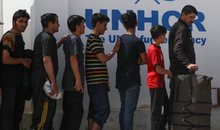


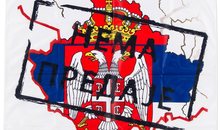
Belgrade University Professor Raises Alarm: Serbia Wants to Take Kosovo by Force
2025-04-29 17:41:25


Kremlin rejects Zelenskyy's offer for 30-day ceasefire
2025-04-29 16:55:58

"Best wishes"/ Mitsotakis meets and congratulates Berisha at the EPP Congress
2025-04-29 16:38:02

Clashes at Tom Doshi's electoral office at 'Ali Demi', PSD reacts
2025-04-29 16:14:12



Lobbying in the US, Tabaku: Everything will be transparent and declared
2025-04-29 15:23:00
May 11 elections, OSCE/ODIHR report: Not all recommendations have been respected
2025-04-29 15:19:44

Fight at Tom Doshi's PSD office at 'Ali Demi', police find two bullets
2025-04-29 14:52:49

'Toyota Yaris', goes to trial at the GJKKO, lawyer Radovan Çela
2025-04-29 14:13:26
Albanian arrested in Italy for transporting 10 kg of cocaine
2025-04-29 13:58:56


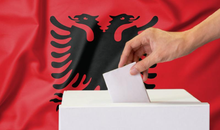
Before the ballot: A cold calculation in four directions
2025-04-29 13:20:41
EPP Congress, Berisha: I return to Spain, where I was last time
2025-04-29 13:10:07
Spahia: On May 11th we end discrimination against the north
2025-04-29 12:58:24
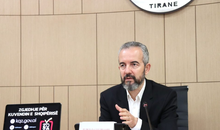
PD lobbying, Celibashi clarifies: PD has no obligation to file documents
2025-04-29 12:30:08
Three teenagers in Lezha were injured after a 17-year-old was punched
2025-04-29 12:25:09
Edi Rama's anti-American campaign
2025-04-29 12:17:22

Why didn't Rama dare answer these 12 questions yesterday at the QSU?
2025-04-29 11:59:45
3 qualities that make the difference for a 'strong mind'
2025-04-29 11:43:34

Xhaferri: Rama has forgotten the citizen and has invested only in corrupt PPPs!
2025-04-29 11:22:02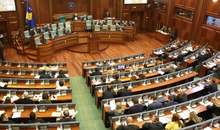
The constitution of the Kosovo Assembly fails for the eighth time
2025-04-29 11:11:02
Tabaku continues his campaign, meets with Reshat Arbana
2025-04-29 11:01:04

Attempted to violently rob three Italians, young man arrested in Durrës
2025-04-29 10:40:25

Journalist: 35 refugees in Gjadri camp have attempted suicide
2025-04-29 10:17:23



Rama: Don't mess with patronizers
2025-04-29 09:37:27
Are twins allergic to the same things?
2025-04-29 09:28:33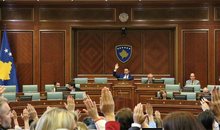
The Kosovo Assembly meets again today in a constitutive session
2025-04-29 09:20:47

Television media become an 'extension' of party propaganda during the campaign
2025-04-29 08:59:28

Albanians perceive economic inequality much higher than official indicators
2025-04-29 08:39:46
The city once breathed, today it coughs.
2025-04-29 08:31:21

Weather forecast/ How temperatures will vary throughout the day
2025-04-29 07:54:27
"Avoid impulsive purchases"/ Today's horoscope
2025-04-29 07:31:59
Morning Post/ In 2 lines: What mattered yesterday in Albania
2025-04-29 07:20:17
Poll/ DP ranks first in Shkodra
2025-04-28 22:55:39
Analyst: Edi Rama is an ordinary fraudster
2025-04-28 22:30:06

Immigrant in Sweden accuses CEC of violating the secrecy of his vote
2025-04-28 21:44:30


Bullets fired at car, Albanian injured in Switzerland
2025-04-28 21:02:07
Albanian caught with 2 million euros of cocaine in his car
2025-04-28 20:45:20

Why does Rama threaten citizens who complain about corruption?
2025-04-28 20:17:54

Gjekmarkaj meeting with residents in Tale 2: We win 5:2 in the Lezha region
2025-04-28 19:55:24
CEC tests PEI devices to be used on May 11
2025-04-28 19:36:24


"Enough is enough", Rama is distracted by young people during the meeting
2025-04-28 19:12:28
"La Stampa": 16 migrants have "disappeared" from the Gjadri camp
2025-04-28 18:55:34


A person's eyes can tell if they have 'mental problems'
2025-04-28 18:05:09


Cardiovascular diseases, 8% of patients at risk for cardiac arrest
2025-04-28 17:19:40
Xhaferri: The next Prime Minister from the DP will be for all citizens
2025-04-28 17:11:44

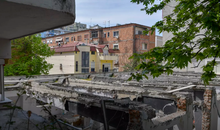

Children with developmental and speech delays due to "cellphone in hand"
2025-04-28 16:22:51
Power outages in Spain and Portugal, services 'paralyzed'
2025-04-28 16:14:38